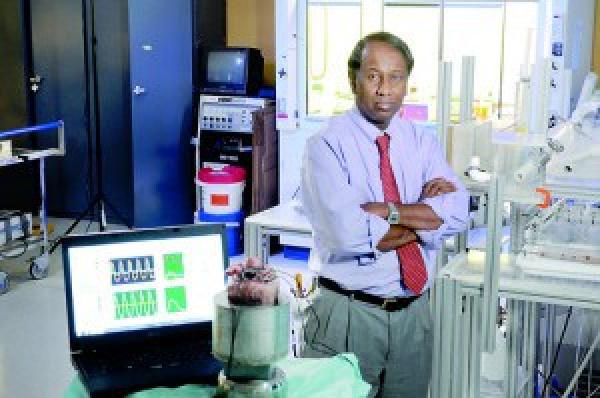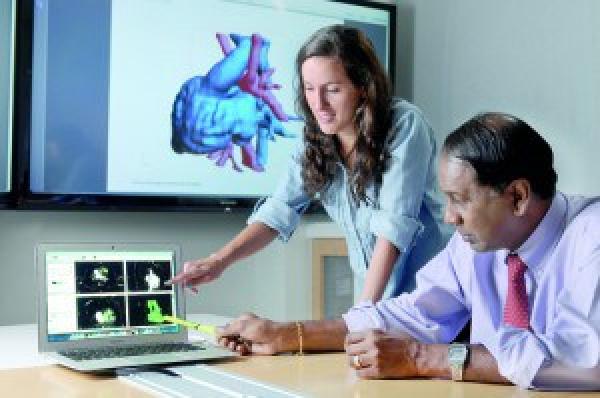A group of Georgia Tech researchers has demonstrated for the first time that improving how efficiently they re-route blood in patients born with complex heart abnormalities also improves how well those patients can exercise. And that could reduce the long-term complications in a patient population that’s getting older.
In the procedure, surgeons typically bypass one of heart’s right ventricle, the lower chamber that pumps blood out to the lungs to be re-oxygenated. This is called a total cavopulmonary connection (TCPC), or Fontan procedure. The research shows improving the design of that connection has real benefits for patients.
“This has been previously hypothesized with computer simulations, but until now had never been demonstrated with solid research,” said Dr. Ajit Yoganathan, one of the paper’s authors. “The results have real-world implications for patients who have had this heart procedure in the past. The more we can reduce their complications, the better off they’ll be.”
The study focused on 30 patients with only one functioning ventricle in their heart. The patients exercised by riding a bike for several minutes while their blood flow was measured with MRI. Researchers observed that patients with a more energy-efficient TCPC had a higher tolerance for exercise.
The findings were recently published in Heart, an international peer-reviewed journal for health professionals and researchers in all areas of cardiology. Yoganathan and eight other researchers from Georgia Tech’s Wallace H. Coulter Department of Biomedical Engineering contributed to the study.
“These findings are important for patients who have had a Fontan procedure because the TCPC design can be surgically modified,” said Maria Restrepo, a Ph.D. candidate who co-authored the study. “This means we can take a proactive approach to reducing their complications, lessening the burden on the nation’s healthcare system and improving their quality of life.”
The research was a collaboration between Georgia Tech and the Children’s Hospital of Philadelphia with support from the National Heart, Lung and Blood Institute.
To read the full findings in Heart, click here.
To view a related video, click here.
Written by Chris Calleri
Media Contact
Chris Calleri
Communications Manager
Wallace H. Coulter Department of Biomedical Engineering
Georgia Institute of Technology & Emory School of Medicine
313 Ferst Drive, Suite 2120
Atlanta, GA 30332-0535
Phone: 404.385.2416
Keywords
Latest BME News
Jo honored for his impact on science and mentorship
The department rises to the top in biomedical engineering programs for undergraduate education.
Commercialization program in Coulter BME announces project teams who will receive support to get their research to market.
Courses in the Wallace H. Coulter Department of Biomedical Engineering are being reformatted to incorporate AI and machine learning so students are prepared for a data-driven biotech sector.
Influenced by her mother's journey in engineering, Sriya Surapaneni hopes to inspire other young women in the field.
Coulter BME Professor Earns Tenure, Eyes Future of Innovation in Health and Medicine
The grant will fund the development of cutting-edge technology that could detect colorectal cancer through a simple breath test
The surgical support device landed Coulter BME its 4th consecutive win for the College of Engineering competition.









